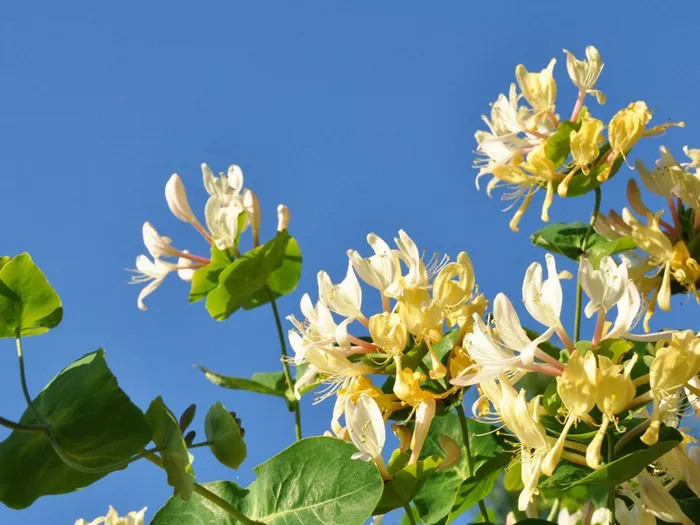Honeysuckle plants, known for their fragrant blooms and ornamental appeal, have long been a favorite among gardeners and nature enthusiasts. However, while these plants may be pleasing to the eye, they can pose a significant danger to our canine companions. In this article, we will explore the various species of honeysuckle that are toxic to dogs, the symptoms of poisoning, and steps that pet owners can take to keep their furry friends safe.
Understanding Honeysuckle Toxicity
Honeysuckle plants belong to the Caprifoliaceae family and encompass a wide range of species, some of which are highly toxic to dogs. One of the most common toxic varieties is the Japanese honeysuckle (Lonicera japonica), which is native to East Asia but has been introduced to various regions around the world. Other toxic species include the Tartarian honeysuckle (Lonicera tartarica) and the Woodbine honeysuckle (Lonicera periclymenum).
The toxicity of honeysuckle plants stems from the presence of saponins and cyanogenic glycosides in their leaves, stems, and berries. These compounds can cause gastrointestinal distress, neurological symptoms, and in severe cases, organ failure in dogs.
Recognizing the Symptoms of Honeysuckle Poisoning
When a dog ingests parts of a toxic honeysuckle plant, they may exhibit a range of symptoms that can vary in severity. Common signs of poisoning include:
1. Gastrointestinal Distress: Dogs may experience vomiting, diarrhea, and abdominal pain shortly after ingesting toxic plant material. These symptoms can lead to dehydration and electrolyte imbalances if left untreated.
2. Neurological Symptoms: Ingestion of certain toxins in honeysuckle plants can affect the central nervous system, leading to symptoms such as weakness, tremors, seizures, and disorientation. These neurological symptoms can be particularly alarming for pet owners and require immediate veterinary attention.
3. Respiratory Distress: In some cases, dogs may exhibit difficulty breathing or respiratory distress after ingesting toxic honeysuckle plants. This can occur due to swelling of the airways or other respiratory complications.
4. Cardiac Effects: Cyanogenic glycosides present in certain honeysuckle species can interfere with cardiac function, leading to irregular heartbeats or even cardiac arrest in severe cases.
It’s essential for pet owners to be vigilant and seek veterinary care promptly if their dog displays any of these symptoms after potential exposure to toxic honeysuckle plants.
Preventing Honeysuckle Poisoning in Dogs
Prevention is key when it comes to protecting dogs from the harmful effects of toxic honeysuckle plants. Here are some measures that pet owners can take to minimize the risk of poisoning:
1. Identification: Learn to identify toxic honeysuckle species and avoid planting them in areas accessible to dogs. Japanese honeysuckle, Tartarian honeysuckle, and Woodbine honeysuckle are among the varieties known to be toxic to dogs.
2. Secure Garden Areas: If you have toxic honeysuckle plants in your garden, take steps to secure these areas to prevent your dog from accessing them. Use fencing or other barriers to restrict access, especially if your dog is known to roam freely in the yard.
3. Supervision: When spending time outdoors with your dog, supervise them closely to ensure they do not ingest potentially harmful plants. Train your dog to avoid foraging and explore safe areas of your yard or neighborhood.
4. Education: Educate yourself and your family members about the dangers of toxic plants, including honeysuckle, and teach children to avoid picking or consuming berries or plant parts they find outdoors.
5. Consultation with Veterinarian: If you suspect your dog has ingested any part of a toxic honeysuckle plant, seek immediate veterinary care. Prompt treatment can help minimize the risk of complications and improve your dog’s chances of recovery.
By taking these preventive measures, pet owners can reduce the likelihood of honeysuckle poisoning in their dogs and create a safer environment for their furry companions.
Treatment for Honeysuckle Poisoning
If a dog is suspected of ingesting toxic honeysuckle plants, prompt veterinary care is essential. Treatment for honeysuckle poisoning may include:
1. Inducing Vomiting: In cases where ingestion has occurred recently, a veterinarian may induce vomiting to remove the toxic plant material from the dog’s stomach.
2. Activated Charcoal: Activated charcoal may be administered to absorb toxins in the dog’s gastrointestinal tract and prevent further absorption into the bloodstream.
3. Fluid Therapy: Intravenous fluids may be administered to treat dehydration and electrolyte imbalances resulting from vomiting and diarrhea.
4. Medication: Depending on the severity of symptoms, a veterinarian may prescribe medication to address specific issues such as seizures, respiratory distress, or cardiac abnormalities.
5. Monitoring and Supportive Care: Dogs affected by honeysuckle poisoning may require close monitoring and supportive care until their condition stabilizes. This may include monitoring vital signs, providing supplemental oxygen, and addressing any complications that arise.
The prognosis for dogs with honeysuckle poisoning varies depending on factors such as the amount ingested, the specific toxins involved, and the timeliness of veterinary intervention. With prompt and appropriate treatment, many dogs can recover from honeysuckle poisoning and go on to lead healthy lives.
Conclusion
While honeysuckle plants may add beauty to our gardens and landscapes, it’s crucial for pet owners to be aware of the potential dangers they pose to dogs. By familiarizing themselves with toxic honeysuckle species, taking preventive measures to limit exposure, and seeking prompt veterinary care if poisoning is suspected, pet owners can help keep their canine companions safe from harm. Remember, when it comes to protecting our furry friends, knowledge and vigilance are our most potent allies.


